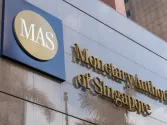
Political turmoil could impact Thai banks' profitability – Fitch
But rating agency said Thai banks' overall financial positions should remain relatively strong in 2010.
Fitch Ratings on Wednesday said that the recent political turmoil in Thailand could affect Thai banks' profitability due to a fall in revenue and higher provisioning costs. While Thai banks' strong capital and liquidity buffers provide a cushion against this shock, prolonged weak economic growth and political instability are likely to constrain their performance in 2010, according to a Fitch Ratings report.
"As a result of the escalated civil unrest, Thai banks' revenue could weaken due to a fall in consumption and investment. Along with higher loan loss provisions, these developments are likely to impact profitability, although Thai banks' overall financial positions should remain relatively strong in 2010," says Vincent Milton, Managing Director of Fitch Ratings (Thailand) and a Senior Director of Financial Institutions at the agency.
Asset quality pressure, particularly for the tourism, retail trade and consumer sectors, is likely to increase given the disruption to these businesses. Fitch expects to see a further increase in special mention loans which have risen sharply over the past two years. Given these stresses, Thai banks' non-performing loans (NPLs) are also likely to rise from the current sector average of about 6% of loans.
Among the major banks, Bank of Ayudhya Public Company Limited (BAY: 'AA-(tha)'/Stable) has the highest consumer loans (42% of loans) and moderately higher exposure to hotels compared to the sector average of about 4% of loans. Siam Commercial Bank Public Company Limited (SCB: 'AA(tha)'/Stable) also has a high consumer loan exposure, mainly mortgage and auto hire purchase (38% of loans). Thanachart Bank Public Company Limited (TBANK: 'A(tha)'/RWP) has the highest exposure to auto hire purchase (80% of loans), while AEON Thana Sinsap (Thailand) Public Company Limited (AEONT: 'BBB+(tha)'/Stable), a non-bank consumer finance company, is most vulnerable in the finance sector given its concentration in the lower income consumer finance business (mainly credit card and personal loan). Krung Thai Bank Public Company Limited (KTB: 'AA+(tha)'/Stable) may also be impacted by supporting government stimulus policies which could affect the bank's asset quality.
Fitch expects Thai banks' net interest margins (NIM) and return on assets (ROA) to weaken moderately from the high level reported in 2009 (3.4% and 1.1%, respectively) due to falling asset yields and a jump in provisions, although Thai banks' strong Tier 1 capital ratio (end-2009: average 11.7%) provides a buffer against these downside risks. Based on Fitch's high stress scenario analysis, in the event of a sharp deterioration of Thai banks' profitability and asset quality, the major banks should remain well capitalised due to their strong profit margins and capital buffers. While growth could be impacted in Q210, Fitch still expects Thailand's economic growth to recover modestly in 2010 with a full-year GDP growth forecast of 3.8%.
As of May 26, 2010, Fitch maintained coverage of 27 financial institutions in Thailand.






















 Advertise
Advertise








